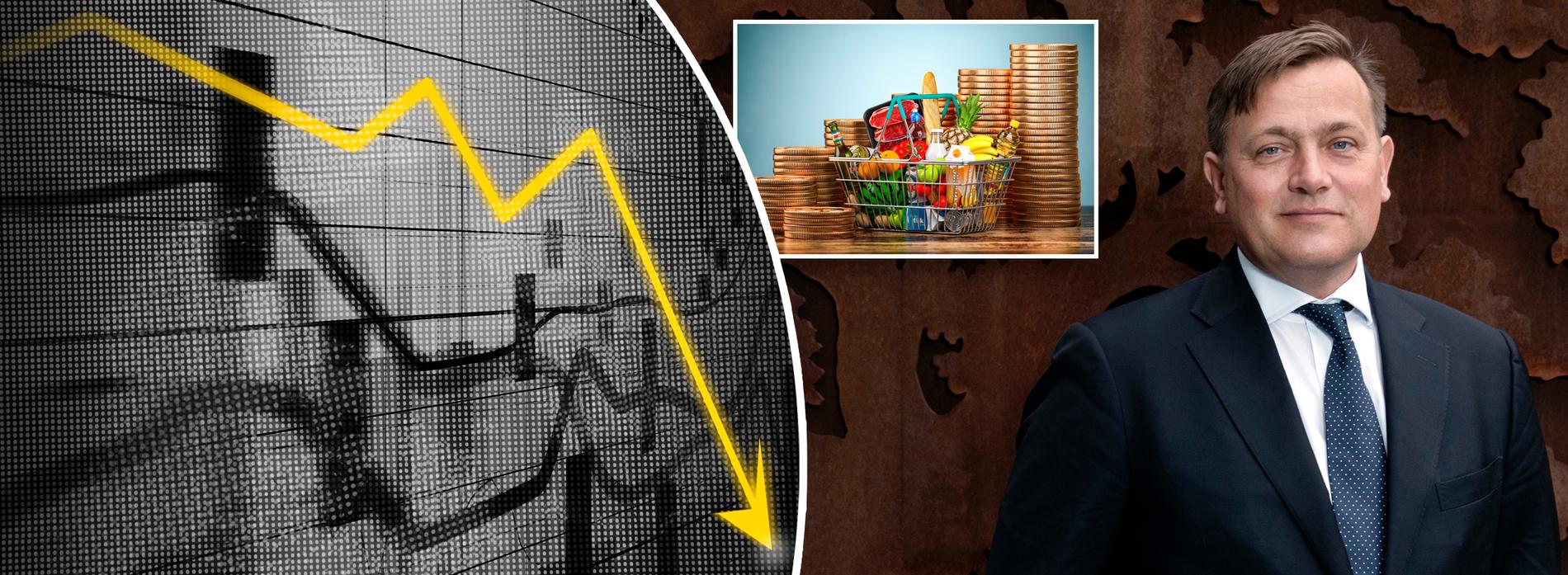
Of:
Rikard Rosell
Published: Less than 2 hours ago
Crisis winter
Rising unemployment, risk of a wave of bankruptcies and inflation that will peak above 12 percent.
It is a gloomy picture that is painted in a new Swedbank forecast.
- When we look at the situation for households, there is much that is reminiscent of the 90s crisis, says Mattias Persson, chief economist at Swedbank.
In Sweden, we are now faced with rising unemployment at the same time as purchasing power continues to erode as the Riksbank continues to raise interest rates to curb inflation. According to Swedbank, inflation will peak in February and can be noted above 12.5 percent measured in CPI.
- Our assessment is that the Riksbank will continue to raise the interest rate by 75 basis points to 2.5 percent in November and then raise it to 3 percent in February 2023, says Mattias Persson.
In a forecast (prognos) for the economic development in the coming years, Swedbank's economists state that Swedish households should prepare for the situation to worsen before it can turn around.

It is a gloomy picture that is painted in a new Swedbank forecast. Photo: Henrik Montgomery/TT
Illumination may come in late 2024
At the end of April, the Riksbank decided to depart from the previous zero interest rate and start raising the indicative key interest rate. During the year, the interest rate has so far been raised on four occasions and is now at 1.75 percent.
- In November 2023, we believe that the Riksbank will clearly signal a reduction and that they will continue to reduce. We expect a series of interest rate cuts of a total of 75 basis points. It will ultimately give a key interest rate of 2.25 percent in 2024, says Mattias Persson.
According to the chief economist, this means that households can set their sights on the fourth quarter of 2024.
- Once you start reducing, the relief will be felt quite quickly for households when the inflationary pressure decreases. This does not mean that the cost pressure disappears. Although energy prices will not be as high as now during next winter, it will still be a difficult period. But when the Riksbank lowers and inflation comes down, it will lighten up and we can see a turnaround.

Mattias Persson, chief economist at Swedbank. Photo: Press image/TT
Tough period awaits for households
Before that turn can come, however, he is clear: It will be tough.
In Swedbank's forecast, the bank's economists predict that the Swedish gross domestic product (GDP) will decrease by almost 1 percent over the next year. In that development can be found rising unemployment and an increased risk of a wave of bankruptcies.
- Small companies in vulnerable sectors such as durable goods, retail trade, as well as hotels and restaurants, there I am a little worried that it might happen. We have seen in September and October how bankruptcy rates have started to rise. I'm not super worried, but I think we've already started to see signs that it's pointing towards more and more bankruptcies, says Mattias Persson, who also highlights the energy situation there.
- If you listen around to companies in southern Sweden that have energy-intensive operations, they are severely affected. It happens in real life.

GDP will decrease by almost 1 percent in the next year, predicts Swedbank. Photo: Getty Images/iStockphoto
"Reminiscent of the 90s crisis"
With regard to the situation for individual households, the chief economist now draws parallels to an earlier historical crisis.
- For households, some indicators are back at the same levels and remind a lot of the 90s crisis, it will be tough in the near term. This applies to housing costs and disposable income, which develops very weakly.
Having said that, Mattias Persson is clear that there are also big differences between today's situation and the previous crisis.
- We have a completely different economic policy framework, we have an independent central bank, we have a fiscal policy and strong state finances. We also have what are called automatic stabilizers like unemployment benefits and other systems that step in and help.
- I would say that Sweden stands strong in comparison to the situation we had in the 90s and my assessment is that we are not at risk of a financial crisis. But for households, there is much that is reminiscent of the previous crisis.
Inga kommentarer:
Skicka en kommentar